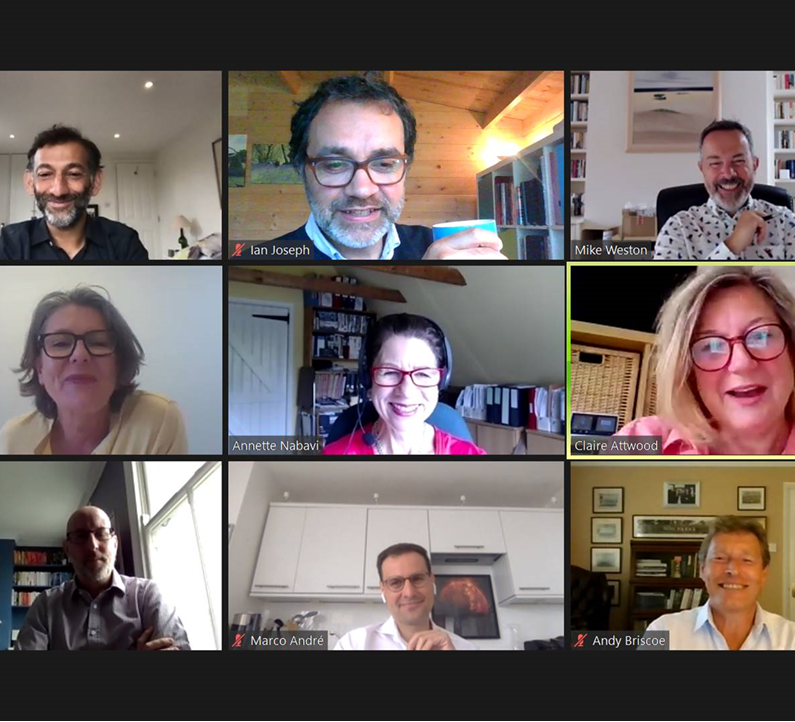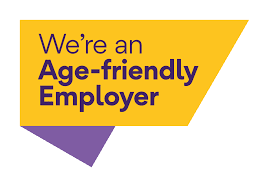Culture, creativity and change expertise trumps technology as key to survival
Russam Round table Webinar – 30th June, 2020
The article https://russam.co.uk/thrive-news/whos-sorry-now-the-technology-skills-gap-in-the-boardroom suggests that the Non-Executive Directors (NEDs) could do more to support change and innovation in the organisations they serve (driven by technology as the enabler). We suggested that there was a skills gap in the boardroom and the pandemic has proven this in a very real way.
We invited executives and non-executives from a broad range of backgrounds to our Zoom Room to talk and learn from sharing experiences and observations to gauge changes in Board culture and any obvious shifts in behaviour as a result of the pandemic.
Thanks to everyone in the room for their passion and interest and contributions to the conversation: Andrew Briscoe, Craig Patton, Dhiraj Mukherjee, Mike Weston, Annette Nabavi, Claire Attwood, Ian Joseph and Marco Andre
Facilitator: Cathy Kay, Managing Partner – Commercial Practice, Russam. Executive Search, Interim Management, Diversity and Board Practice.
An overview:
Generally, there is agreement that NEDs should not be responsible for setting digital strategies but along with the other NEDs, they do have a responsibility for ensuring the business remains competitive and relevant.
For some, technical skills are considered less important than being a leader of change with a more generalist background. The NED with a tech pedigree may quickly find themselves out of date. However, they may be equipped to support the C-suite as they request investment related to technology transformation. Many NEDs have seen great proposals fall over when presented at board level due to a lack of understanding and even when projects were passed, poor communication was blamed for the executive team losing the support from the board. The ability to think creatively is equally in short supply as change/technology know how. There was great support for away days to light up the minds of the Non Executives and asking fresh eyes to the table to guide the board to fresh thinking. We learned too that technology companies were not necessarily creative and even Google sought the help of consultants to promote creative thinking.
Quotes:
- Technology skills are lacking but so are leaders of change and creatives and these are equally valuable expert voices in the boardroom.
- Not much point in the executive coming up with proposals if the board has no idea what you are talking about. There is often an audit and remuneration subcommittee of the board – why not a technology one?
- There should be a mechanism to challenge conventional thinking
- Those less experienced in the realms of tech can seek to get a tech answer rather than thinking of tech as an enabler- solve the business problem first.
- Away days are good, and the external view is respected
Boardroom culture does not always welcome fresh thinking and ideas. We agreed that if businesses are to progress, they should not fear failure. The current objectives of the board are typically more caretaker, but there is a duty of care to ensure the business is fit for the future which requires the board to challenge the executive team. It was agreed that the board behaviours must bare this responsibility. GDPR woke up boards to the importance of challenging the business.
Quotes:
- Technology is not the responsibility of the board, but they should always be curious and challenge the executive team.
- How relevant and current is the dialogue between the non-executive and executive board?
- How do we provide tools to board members who are not digital natives?
We reflected on the last 100 days and are pleased with the way many businesses have responded. We saw companies move to virtual/homeworking set ups within days. This demonstrates that decisions can be made quickly at every level of the organisation. Speedy responses to the pandemic suggest that procrastinating on decisions can be a thing of the past
Quote:
- Some boards will be exhausted from the last three months and with the worst over may slow down. We must strive to keep the pace and stimulus alive forever.
- Covid has shown us what is possible, and some organisations will accelerate – the art of the possible has been exposed and enlightened industries will leverage this.
- There is a risk from boards and executive teams that they will look at the last three months and say ok that is our digital transformation done. There is a power in disruption and companies who cease this will thrive and not just survive.
Everyone agreed that work was easier if everyone was working in the same way and that board meetings with some members dialling in were extremely challenging. Virtual board meetings are made easier without travel and opens opportunities for hiring internationally. The pandemic has forced the use of technology at every level in the organisation.
- Our guests see virtual board meetings as positive and an opportunity to engage talent from a wider geography and help with diversity.
- When decisions need to be made quickly the board responds. It was suggested that this pace should be the new normal.
- With no choice but to use technology minds will be opened by digitising usual practices but won’t necessarily accelerate innovation as the boards are dealing with the short term challenges.
The pandemic has raised awareness of the long term environmental impact of; emissions, flying and these are on the boardroom agenda again.
- Beginning to think more like a PE firm and a broader business that gives a greater chance of success
- Technology, Green and me – is the way to think. How will my business be impacted?
After 90 minutes we considered and discussed the key points of the discussion:
- A great opportunity to work with emerging businesses overseas
- Need to improve the dialogue between the executive and non-executive board
- If a strategy firm is to be successful, they should also learn the language of the board and emphasise the financial opportunity
- Covid and post-Covid is providing a wonderful opportunity to think laterally and broadly
- Not all business needs to pivot completely but must embrace digital and need to be cognizant of different types of transformation
- The responsibility for change is across the board
- Technology enables things to happen quickly as there are less challenges in getting people together virtually
- As a NED – yes regulations are important, but we must strive to lead the company to be the best it can be.
- Cultural transformation is the bedrock on which change is made.
In conclusion there are signs that board room behaviours are firmly shifting forced by the pandemic and the acceptance that external support is valuable on many levels. A board has to have their heads in the figures, looking at risk and compliance are prioritising shareholders, but they also have a responsibility to challenge the executive team to ensure the business is sustainable. It is not all about technology though as we learned boards will benefit from a culture of creative thinking, must avoid a blame culture and thereby encourage innovation. The recent speed at which decisions have been made has set a pace for decision making. There must be effort made to improve communication with the executive team.


Contact us
Call us on 07930 356305 or email HQ@russam.co.uk








